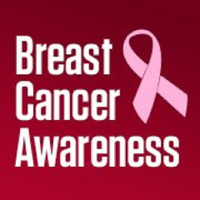Government Report Urges more Research on Environmental and Behavioral Causes of Breast Cancer

For too long now the federal government has not devoted enough money on research to determine the possible environmental and behavioral causes of breast cancer, experts say in a new report.
The Interagency Breast Cancer and Environmental Research Coordinating Committee (IBCERCC), composed of breast cancer experts from universities, federal agencies, and advocacy groups, concluded that Washington should devote more resources to examining human behaviors, chemical exposures, and social and socioeconomic factors that may contribute to the disease.
Among the factors deemed worthy of further research were:
- Alcohol intake
- Insufficient physical activity
- Weight gain in adulthood
- Night shift work
- Exposure to pesticides
- Exposure to industrial pollutants
- Radiation from medical and non-medical sources
- Exposure to light at night
- Family, community and social influences.
“We can no longer ignore the major gaps in understanding the role of the environment in breast cancer, because we are constantly exposed to combinations of chemicals without knowing whether they could make one at risk for breast cancer,” Michele Forman, chair of the IBCERCC and epidemiologist at The University of Texas at Austin, said in a prepared statement.
“We want this report to be a call to action, to bring awareness to the issue of prevention and move the country forward on this issue. This report is intended to set the stage for a strategic plan in much the same way the 1964 surgeon general’s report on smoking tobacco changed how we thought about lung cancer risk,” Forman added.
Forman and her colleagues noted that only 10% of research at the leading federal agencies studying breast cancer has focused on the environment and prevention.
-Noel Brinkerhoff
To Learn More:
Report Faults Priorities in Studying Breast Cancer (by Denise Grady, New York Times)
Experts Call for Federal Government to Increase Breast Cancer Prevention Efforts (University of Texas at Austin)
Breast Cancer and the Environment: Prioritizing Prevention (Interagency Breast Cancer and Environmental Research Coordinating Committee) (pdf)
Interagency Breast Cancer & Environmental Research Coordinating Committee (National Institute of Environmental Health Sciences)
New State Mapping Finds Breast Cancer in Unexpected Communities (by Ken Broder, AllGov California)
- Top Stories
- Unusual News
- Where is the Money Going?
- Controversies
- U.S. and the World
- Appointments and Resignations
- Latest News
- Musk and Trump Fire Members of Congress
- Trump Calls for Violent Street Demonstrations Against Himself
- Trump Changes Name of Republican Party
- The 2024 Election By the Numbers
- Bashar al-Assad—The Fall of a Rabid AntiSemite






Comments